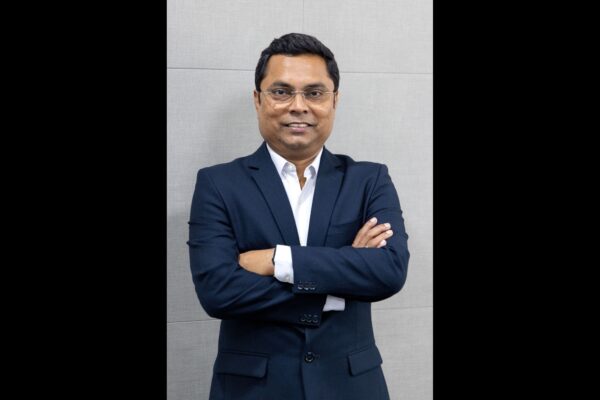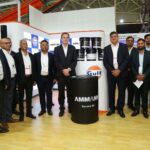Volvo Penta is witnessing accelerated growth in Indian Market
Volvo Penta benefits from the Volvo Group’s backing, history of innovation, and research and development. Like the rest of its sister companies, Volvo Penta is committed to core values of quality, safety and environmental care, says Jonas Nilsson, Head of Volvo Penta, India in an interaction with EPC World.
Please take us through the journey of Volvo Penta in India?
The company has been performing well. Volvo Penta in India is witnessing double digit growth. On the industrial side, we have brought a new line of engines. The company has already introduced these products in the American and European markets. Now, we have forayed them in the Indian market too.
What are the launches from Volvo Penta at Excon 2015?
The product range, we are showcasing, has already been launched in other markets. But we are unveiling this range in India for the first time. These are 5 and 8 litres engine. Volvo Penta’s new range of D5 and D8 engines are certified for EU stage 3 and CEV Bharat Stage III emissions standards and are already in the field, powering a variety of applications — including construction, material handling, raw material exploration, forestry and agriculture — around the world. These robust, reliable D5 and D8 off-road engines share the same common electronics platform as their D11, D13, and D16 counterparts, which allow them to communicate using the same protocol, regardless of emissions level — simplifying design work for OEMs. The engines’ inline 4- and 6-cylinder design and common design footprint also make the design process easier for several emissions stages. OEMs can replace their existing 6- or 7-liter 6-cylinder engines with our 4-cylinder D5, due to its higher power density. Downsizing to a 4-cylinder engine, with its lower weight and compact size, makes installation easier.
Please tell us about the achievements of Volvo Penta as a company?
Volvo Penta benefits from the Volvo Group’s backing, history of innovation, and research and development. Like the rest of its sister companies, Volvo Penta is committed to core values of quality, safety and environmental care. As the product of that Volvo heritage, the D5 and D8 reduce fuel consumption by as much as 2.5 per cent as compared to previous generation engines. They also offer excellent power density and higher torque at low speed. To fulfill its commitment to environmental care, Volvo Penta takes an innovative approach to meeting emission standards while most of the engine manufacturers have incorporated exhaust gas recirculation (EGR) into their CEV Bharat Stage III models, Volvo Penta engineered its D5 and D8 engines to burn so cleanly that they don’t need the addition of an EGR. The benefits of the engine’s highly efficient fuel injection system include less upkeep and maintenance, as well as better fuel consumption and good low-end response.
Do you have any plans to export these manufactured engines?
Currently, we are manufacturing the base engine only in India and then the final assembly is done in Europe. The company is looking at the feasibility of finalising the complete production in India. In India, the benefit is that with one single base engine, we are able to cover stage II, III or even stage IV emission levels in the market.
How is your industrial segment business shaping up in India?
Here in India, with our new range of engines from 5 – 16 liters we are working with various OEMs, expanding our dealer network, increasing our aftermarket support systems to strengthen our share in the Industrial segment.
What would be the application areas for the new range of engines in India?
We are working with customers in selective segments like material handling equipment, raw material exploration, construction and Agriculture.
Are you satisfied with the environmental norms?
India has a huge domestic market. It would benefit the equipment industry if the certifications were homogenised with the global standards. We are seeing active progress in the environmental norms which will benefit the Industry.
Do you think India can be the hub for manufacturing in South Asia?
The homogenisation is very important to reach out to outer world markets. Any company which invests in a market needs to see that there is distribution channel in order to widen the reach of the product over large geographical region. I think there is so much competence in India on the engineering front which can help India to turn as manufacturing hub.









